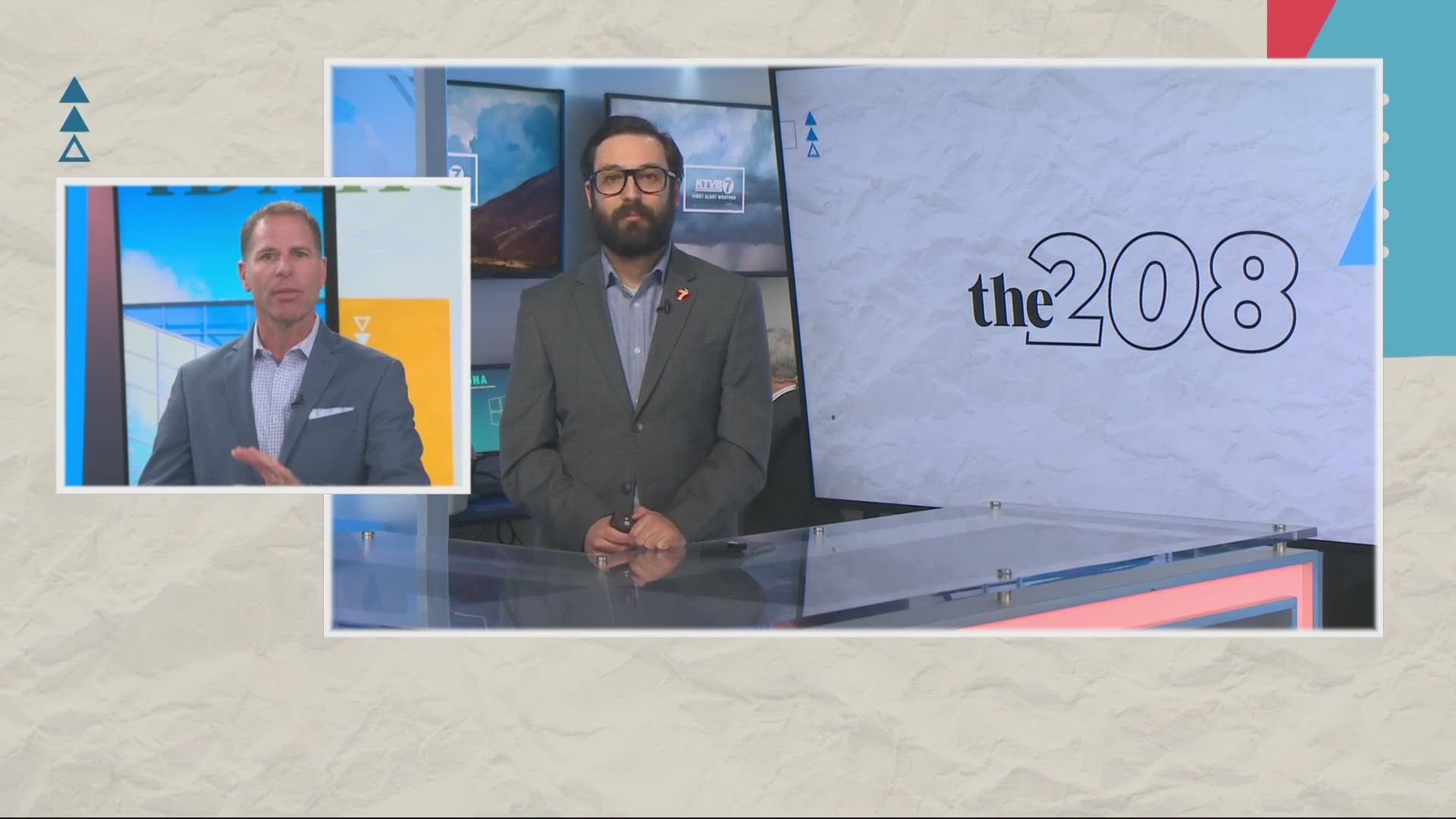BOISE, Idaho — Legislation pertaining to Idaho's election laws was the main topic of discussion in the House State Affairs Committee on Wednesday.
Two bills of note were presented for debate.
The first up for consideration was House Bill 11, which very simply prohibits the State of Idaho from using private money to administer an election. A method once prohibited, but only to local government.
You may be asking at home, is this something that has been done in the past? Does the state get private money to run elections?
No.
However, there is one, singular instance where private money was used recently.
Secretary of State Phil McGrane, who spoke on the bill in the committee Wednesday, explained the controversy that the opposition wants to avoid; and it may sound quite familiar...
"House Bill 11 stems from the 2020 election where we were in the thick of the pandemic. Absentee balloting was off the charts. There was some private grant money that was used to help add pay for PPE, to help pay for some additional pay for poll workers and other things that was used across the country," said McGrane.
"That raised a lot of questions about the funding of elections and whatnot. It's very simple. Elections really are, at their core, a government function and simple."
McGrane added that "House Bill 11 says that it should be paid for by the government, whether that's by the local government, by the state or the federal government...And so, this bill was just a simple cleanup bill to make sure that that happens."
So, to clarify, McGrane said that he thinks private money has no business in elections, and that it is something capable of breaking trust in the system.
"Absolutely. One of the biggest challenges we have right now is building confidence and trust in our elections. And if there's any notion that somebody has undue influence somehow in the process, that is a real concern," said McGrane.
"And so what this bill does, it just closes one spot in the law to say, you know, we shouldn't have an election sponsored by Coca-Cola or some other brand or anything else, not that we ever would, and not that it has happened. It's just one of those piece-of-mind (things) to give people confidence in the process."
House Bill 11 passed to the full house, and there is great confidence that it will end up on the Governor Little's desk in the coming weeks.
House Bill 58:
Another piece of election-related legislation being discussed Wednesday may be considered a little more controversial, drawing some exciting discussion.
House Bill 58 aims to remove the months of March and August from the election period allotted for school bonds and levies.
Instead, the bill proposed a consolidation effort, combining the entire election period to the May and November election cycles.
There were two distinct camps on this proposed bill.
Some believe the March and August school elections are obscure and not sufficiently publicized, with complaints that if one does not have a child in school, knowledge of the election regarding bonds and levies (a vote with potential impacts on tax rates) is limited.
Others argue that getting rid of the March and August elections will result in important bonds and levies getting lost on the ballot during busy political cycles.
That defense continues with concerns that those levies and bonds are crucial to keeping schools running efficiently.
Both sides presented their case in a public testimony, before the committee passed the idea on a party line vote.
Familiar debate?
Now the discussion may sound familiar, as it resembles a point brought up during the race for Secretary of State last fall.
In that race there were many comments from Idahoans asking if candidates for Secretary of State would implement a voter guide system for Idaho - something that voters have been asking the Secretary of State's office to publish for years.
The request is of a guide about the candidates, hot-button issues for which the candidate stands. Something many other states already do.
On the debate of House Bill 58 and school elections, McGrane has this note on the voter guide question:
"One of my goals as Secretary of State is actually to provide more information to voters. One of the ideas I'll be proposing later this session is a voter guide to get information out about both. Hey, an election is coming up and here's what you're going to be voting on," McGrane said.
"So, if you want to do your research, here's information you can do use to find out about the candidates, to find out about the issues and that was one of the key things I heard in today's debate was a combination of turnout, but also information and education. There was a few citizens who testified and said we need to make voters informed about what's coming up. And hopefully as secretary, I can help participate in that."
Join 'The 208' conversation:
- Text us at (208) 321-5614
- E-mail us at the208@ktvb.com
- Join our The 208 Facebook group: https://www.facebook.com/groups/the208KTVB/
- Follow us on Twitter: @the208KTVB or tweet #the208 and #SoIdaho
- Follow us on Instagram: @the208KTVB
- Bookmark our landing page: /the-208
- Still reading this list? We're on YouTube, too:

